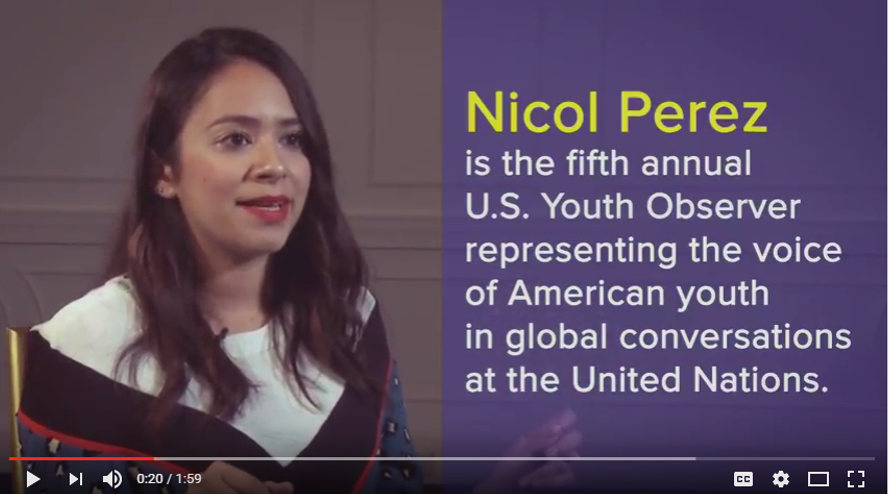Youth Economic Opportunities Summit: Don’t Be Afraid to Fail
Did You Know?
- Youth unemployment around the world is double, and in some cases, triple that of older generations.
- According to the International Labor Organization, there are over 73 million young people between the ages of 15-24 that are unemployed.
- Young people were hit the hardest by the Financial Crisis in 2008, and are finding it very difficult even today, 10 years later, to find solid ground.
These figures are incredibly alarming. Young people all over the world, regardless of a countries’ stage of development, are suffering from unemployment. This is a universal problem.
To learn more about this issue, I attended the Global Youth Economic Opportunities Summit where I learned about the work that many organizations have been focusing on to help solve the issues of youth unemployment.
What can young people do to ensure they are participating in the labor force? Here a few principles I focused on when I was transitioning into the workforce and that I’ve learned from the Youth Economic Opportunities Summit:
- Be prepared. Don’t wait for others to hand you opportunities.
- Look for mentors. Mentors can guide you throughout your career. Don’t be afraid to contact people that you admire.
- Build proper partnerships. For example, if you’re an artist, partner with someone that can help you organize showcases. If you are an engineer, partner with someone that can help you monetize your product. Play up to your strengths and partner with those that have different strengths but similar passions.
- Network at work. If you’re currently already working, how is your employer helping the communities around you? Figure out ways that you can help build mentorship programs or internship programs in your own companies so you can help other young people.
- Collaborate. If you are a young entrepreneur and are looking for funding or looking to collaborate with other organizations, Don’t ask “What can you give me?” Instead, ask, “what do you aspire to do as an organization and how can we collaborate to move forward in that direction. “Learn how to pitch your ideas in ways that drive mutually beneficial results.
- Embrace Failure. Finally, the biggest lesson I learned at the summit was on failure. We must fail, and fail often. At the summit we had an amazing session where people went on stage and talked about their failed business ventures/ projects. This was not only hilarious, but it was also such a great learning experience. Don’t be ashamed of failure. Behind every success there are hundreds if not thousands of failures. Reflect and learn, and then keep going at it!
There are 1.8 billion young people between the ages of 15 – 24. In the 20 least developed countries in the world, young people make up the majority of the population. Did you know that we are the largest youth population in history?! This means that our society simply cannot function if we’re not making sure that young people are getting access to the resources and opportunities they need to succeed. This is especially true when we ignore minority populations, or those that are most vulnerable. A lack of decent jobs for young people can lead to feelings of inadequacy and increased mental health issues which can lead to long-term negative consequences on a young person’s development and social inclusion. Our economies simply cannot prosper if we don’t give young people the chance to participate.
In order to ensure young people’s participation in the workforce, I recommend that governments, companies, and non-profits focus on the following:
- Quality Education. This means providing everyone, boys AND girls, with the opportunity to get an education that will provide them with the knowledge and skills they need to start their careers. This includes education for parents and community leaders to drive home the message that girls around the world need to have access to the same opportunities as their male counterparts.
- School-To-University Programs. Providing students with guidance on college applications, entrance exam prep, and support during the transition. This includes young people in hard to reach places.
- School-To-Work Training Programs. No student should graduate college without knowing how to properly file their taxes, personal finance, how to register to vote, how to fill out a check, or any other basic skill needed to survive in society.
- Labor Rights. Needed to protect young people from all forms of discrimination.
For more resources on entrepreneurship visit:
http://unyouthswap.org/thematic-areas/employment-and-entrepreneurship




